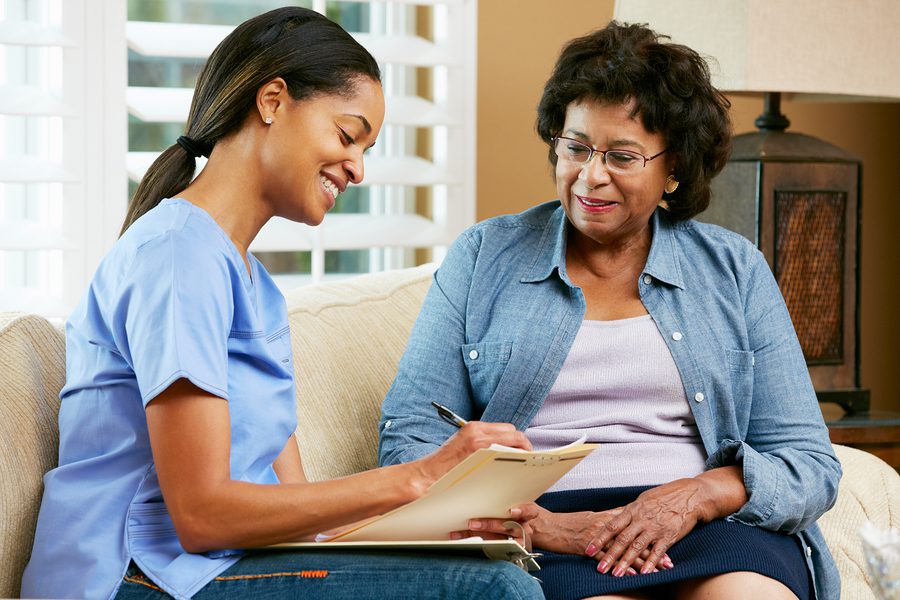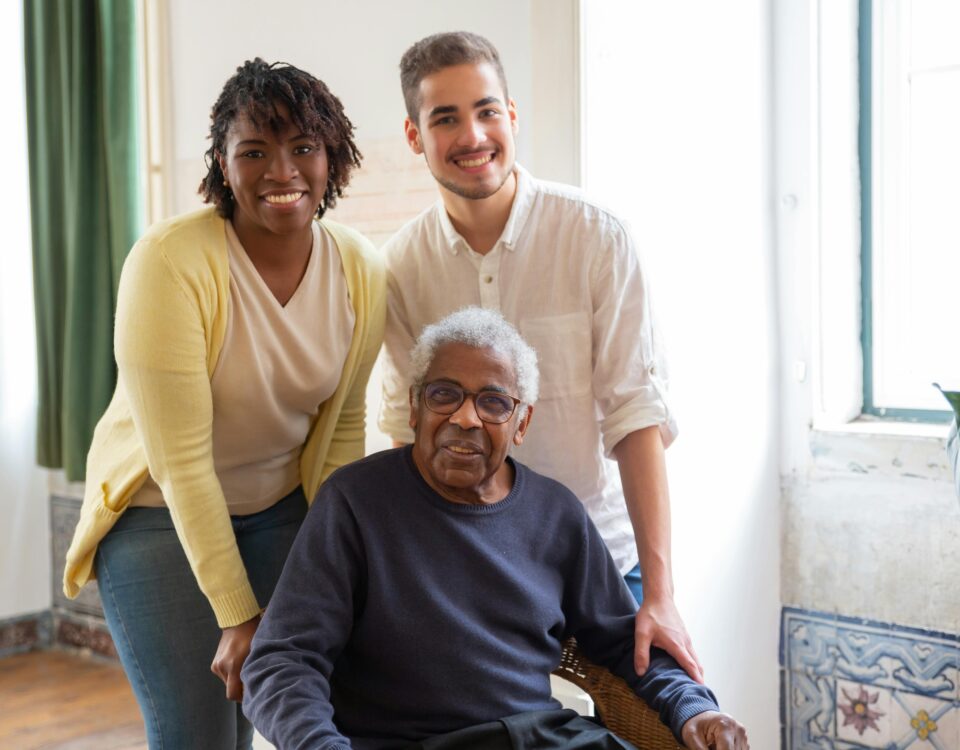Signs of Low Blood Pressure

What Products Can Help to Improve Safety in Your Parent’s Bath or Shower?
February 27, 2019
Is it Possible to Have Privacy as a Caregiver?
March 4, 2019Signs of Low Blood Pressure
Most people are familiar with the dangers of high blood pressure, or hypertension. However, it is also possible for older adults to suffer from hypotension, or low blood pressure. When a senior’s blood pressure is too low, it can cause them to be dizzy, impacting balance and putting them at risk for falls. They can also faint. Understanding hypotension and recognizing the signs can ensure your aging relative gets the medical attention they need.

Nurse Making Notes During Home Visit With Senior Female Patient
Hypotension Basics
Low blood pressure is usually defined as having a systolic (the top number) pressure that is lower than 90 or a diastolic (the bottom number) that is lower than 60. There are all kinds of things that can cause a person’s blood pressure to be too low. Some causes that may affect older adults are:
Heart Problems: Several heart problems, such as a slow heartbeat, heart valve issues, or a heart attack can cause blood pressure to be low.
Problems Related to the Endocrine System: Conditions of the endocrine system, including thyroid problems, low blood sugar, and diabetes can lead to low blood pressure.
Dehydration: If your aging relative isn’t taking in enough fluids to replace those they lose, their blood pressure could drop.
Medications: There are several kinds of medications that can have low blood pressure as a side effect.
It is also common for older adults to experience low blood pressure upon standing up. It happens because blood gathers in their legs due to gravity. Normally, the body can adjust for this. However, because of the conditions above as well as some others, your older family member may experience dizziness or may even faint.
Signs of Low Blood Pressure
Regardless of the cause of low blood pressure, common symptoms of the problem are:
- Feeling dizzy or lightheaded.
- Fainting.
- Trouble concentrating.
- Nausea.
- Blurry vision.
- Fatigue.
- Depression.
- Skin that is cold and clammy.
- Fast and shallow breathing.
- Managing Low Blood Pressure.
If you notice signs of low blood pressure in your older family member, it’s important that you seek medical attention for them since there may be an underlying condition that needs treatment. In addition to treating the underlying problem, some ways to improve low blood pressure are staying hydrated, eating a healthy diet, and changing positions more carefully.
Home health care can assist older adults with low blood pressure by making certain they do not fall when getting up. A home care provider can be there to assist them to stand and hold on to them while their body adjusts. A home care provider can also cook healthy meals and ensure they drink plenty of water throughout the day and taking their medications.
Sources: https://www.mayoclinic.org/diseases-conditions/low-blood-pressure/symptoms-causes/syc-20355465
https://www.mayoclinic.org/diseases-conditions/low-blood-pressure/diagnosis-treatment/drc-20355470
https://www.heart.org/en/health-topics/high-blood-pressure/the-facts-about-high-blood-pressure/low-blood-pressure-when-blood-pressure-is-too-low
https://www.webmd.com/heart/understanding-low-blood-pressure-basics

